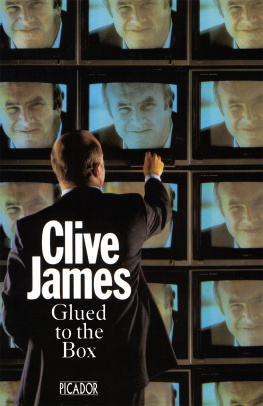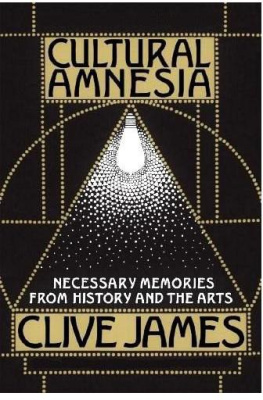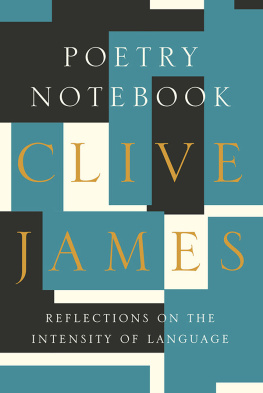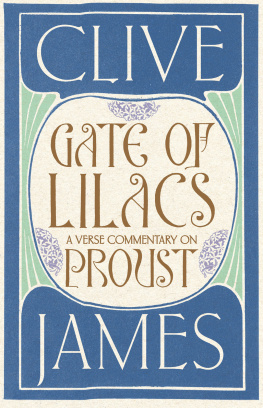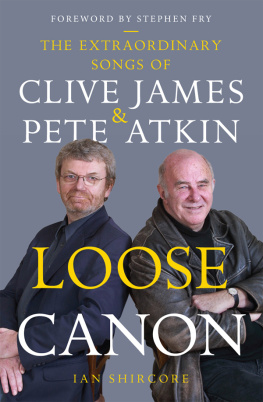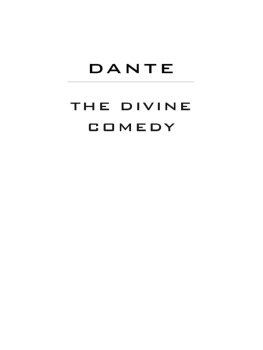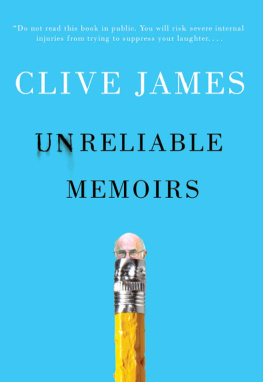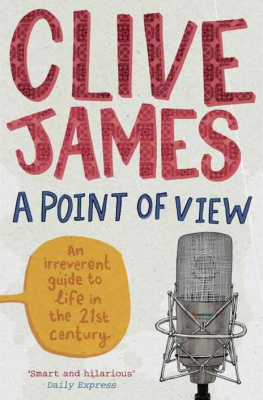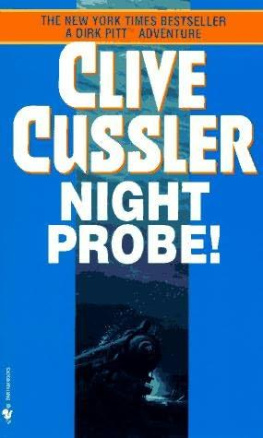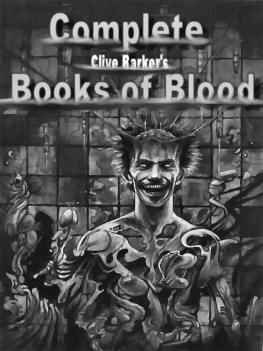Clive James - Glued to the Box
Here you can read online Clive James - Glued to the Box full text of the book (entire story) in english for free. Download pdf and epub, get meaning, cover and reviews about this ebook. year: 2017, publisher: Pan Macmillan UK, genre: Art. Description of the work, (preface) as well as reviews are available. Best literature library LitArk.com created for fans of good reading and offers a wide selection of genres:
Romance novel
Science fiction
Adventure
Detective
Science
History
Home and family
Prose
Art
Politics
Computer
Non-fiction
Religion
Business
Children
Humor
Choose a favorite category and find really read worthwhile books. Enjoy immersion in the world of imagination, feel the emotions of the characters or learn something new for yourself, make an fascinating discovery.
- Book:Glued to the Box
- Author:
- Publisher:Pan Macmillan UK
- Genre:
- Year:2017
- Rating:5 / 5
- Favourites:Add to favourites
- Your mark:
- 100
- 1
- 2
- 3
- 4
- 5
Glued to the Box: summary, description and annotation
We offer to read an annotation, description, summary or preface (depends on what the author of the book "Glued to the Box" wrote himself). If you haven't found the necessary information about the book — write in the comments, we will try to find it.
Glued to the Box — read online for free the complete book (whole text) full work
Below is the text of the book, divided by pages. System saving the place of the last page read, allows you to conveniently read the book "Glued to the Box" online for free, without having to search again every time where you left off. Put a bookmark, and you can go to the page where you finished reading at any time.
Font size:
Interval:
Bookmark:
Glued to the Box
Clive James
Television criticism from the Observer 197982
PICADOR
to Pat and Dan Kavanagh
Humanity will surpass the first dirigibles as it has surpassed the first locomotives. It will surpass M. Santos-Dumont as it has surpassed Stephenson. After telephotography it will continually invent graphies and scopes and phones, all of which will be tele and one will be able to go around the earth in less than no time. But it will always be only the temporal earth. And it will even be possible to burrow inside the earth and pierce it through as I do this ball of clay. But it will always only be the carnal earth.
Charles Pguy in 1907
As in previous collections, to avoid repetition I have cut individual columns severely and left many out altogether. But certain themes, such as the Barbara Woodhouse phenomenon and the remarkable behaviour of John McEnroe, recurred so hauntingly at the time that it would be a falsification to mention them only once. In the case of the Royal Wedding I have restored certain small cuts which had to be made for production reasons. The Wimbledon column for 5 July 1981 went unpublished because of a strike and now appears in its proper place as part of the continuing story of Harry Carpenters elocution.
All the people at the Observer whom I thanked in the introduction of Visions Before Midnight I can only thank again now that my race is run, while adding a special acknowledgement to Deborah Shepherd at Jonathan Cape, who with such care for detail saw all three volumes through the press. To the task of criticizing the critic, my wife has always brought scholarly precision as well as infinite patience, while my daughters grew increasingly valuable as an early warning system: they were the first to spot the vital importance of Tiswas and if it had not been for their keen eyes I might have been much slower to notice that Lucy in Dallas had no neck.
With the last piece selected for this volume I complete a ten-year tour of duty as the Observers television critic. Visions Before Midnight and The Crystal Bucket were the first and second volumes of selections from a column written almost every week during that period. This volume is the third and last. By the time it is published I will have moved on to other things, and probably already started regretting that I ever walked away from such a cushy number. More and more often, as the years wore on, people who felt compelled to encourage me in the delusion that I was a hard-working and useful member of the community would ask me how I planned my viewing week. Wasnt it tiring, deciding what to watch and then sitting there watching it? Dutifully I would pretend that it was back-breaking labour, but neither I nor my interlocutor was ever fooled.
As the television critic sits there night after night, year after year, other men are inhaling toxic dust down coal mines, testing for hairline cracks in the top rims of cooling towers, talking in squeaky voices as they breathe helium at the bottom of the North Sea. Women stuntpersons are doing box-falls down oubliettes in Hammer horror movies. Policewomen with punk hairstyles are out acting as decoys to catch psychopathic rapists who will be fined a hundred pounds and bound over to keep the peace. The greatest risk to the television critic is bedsores, or a sprained wrist as he reaches too suddenly for the thin mints. The present writer once spilled a tray of ice-cubes into his lap when he saw Barbara Woodhouse kissing a horse, but apart from that he got through a whole decade unscathed. Indeed there isnt any reason why a ten-year stint as a television critic should not be extended to embrace the rest of a long life, provided that due attention is paid to diet and exercise. The muscles atrophy, like those of an astronaut too long aloft. Couple that with the almost inevitable acquisition of fatty tissue and you can end up looking like a bean bag, or, dare I say it, a television pouffe.
But though the television critics body might conceivably be said to be at some slight risk, there is no longer any real reason to think that his cerebral cortex is in danger unless one has sustained terminal brain damage without knowing it, and has been locked up in a special ward where they encourage the patient to pretend he is writing the introduction to a volume of criticism while they watch him through one-way glass. When I started as a critic there were plenty of wise voices to tell me that I was wasting my prose on the exaltation of ephemera. By the time I was able to contemplate giving the job up, most of the same wise voices were ready to tell me that I was renouncing my true mtier. Either they thought that my prose had sunk to the level of what it was criticizing, or else they thought that what I was criticizing had risen to meet my prose. In effect, self-congratulatory though it might sound to say so, the latter was what had happened in the sense, not that television had significantly improved, but that their estimation of it had. Nowadays it is much less common for educated people to scorn television. Even some of the Cambridge dons now have television sets standing bare-faced in the living room instead of hidden behind an antimacassar. General statements about the culturally deleterious effect of television are nowadays less likely to go unchallenged.
Philosophy, some philosophers say, leaves things as they are but gives them a thorough airing first. Television, I think, is more like that conception of philosophy than it is like those things which until recently it was regularly accused of being a plague, an apocalypse or a universal solvent. It brings out the histrionic element in otherwise decorous people: it is least of all to be trusted when it purports to show the unvarnished documentary truth; but on the whole it looks at the world while leaving the world as it is. It is not an art form in itself, any more than the telephone is an art form in itself. If people who would realize the folly of deploring the telephones artistic limitations nevertheless deplore televisions artistic limitations, their foolishness is not the fault of television. Television is not even a medium at least not in the sense that McLuhan and lesser pundits tried to call it a medium, with special properties shared by no other medium. Television is a medium only in the sense that a window is a medium. A window might limit our perception of the world according to how it restricts the panorama within its frame, blunts our feeling for the movement of the air, and gives us little idea of how things out there actually smell. But unless we have spent our lives ill in bed then we have been out there, and know the world for what it is. That is how we know the window for what it is: because we know that it does not very much shape the world only, temporarily, what we see.
There are welcome signs at long last that the kind of punditry which declaims so glibly about how television distorts life is being asked to show its credentials. The chief qualification required ought to be the ability to give an indication, preferably unprompted, that life itself has been apprehended as something hard to pin down, sum up or explain away. Ten years ago it was still possible to acquire a reputation as a profound analyst of popular culture by pointing out how the homogeneous flow of television programming imposed the values of a consumer society on the increasingly defenceless population. Today anyone marshalling such a set of assumptions would at least be obliged to argue his case. Beyond that, if his readers were sufficiently on the qui vive, he might be asked to explain what he thought a less homogeneous flow of programming might look like, or even what a non-consumer society might be conceived of as being, always supposing that it could be that and still be free.
Next pageFont size:
Interval:
Bookmark:
Similar books «Glued to the Box»
Look at similar books to Glued to the Box. We have selected literature similar in name and meaning in the hope of providing readers with more options to find new, interesting, not yet read works.
Discussion, reviews of the book Glued to the Box and just readers' own opinions. Leave your comments, write what you think about the work, its meaning or the main characters. Specify what exactly you liked and what you didn't like, and why you think so.

